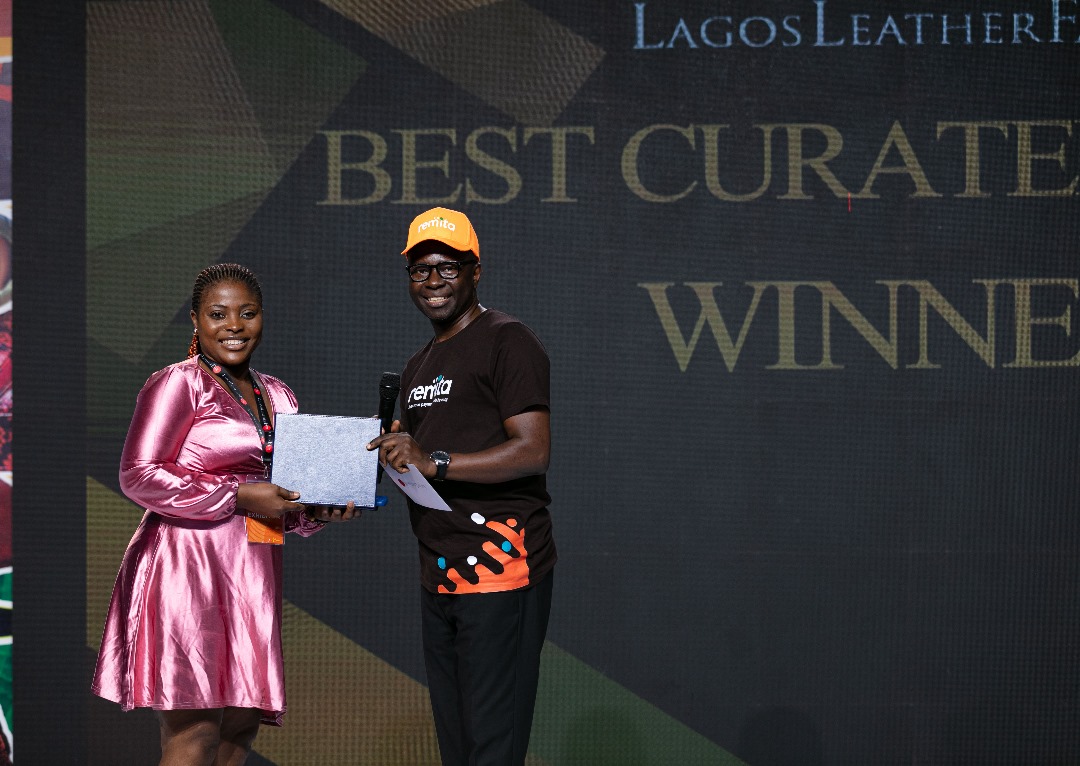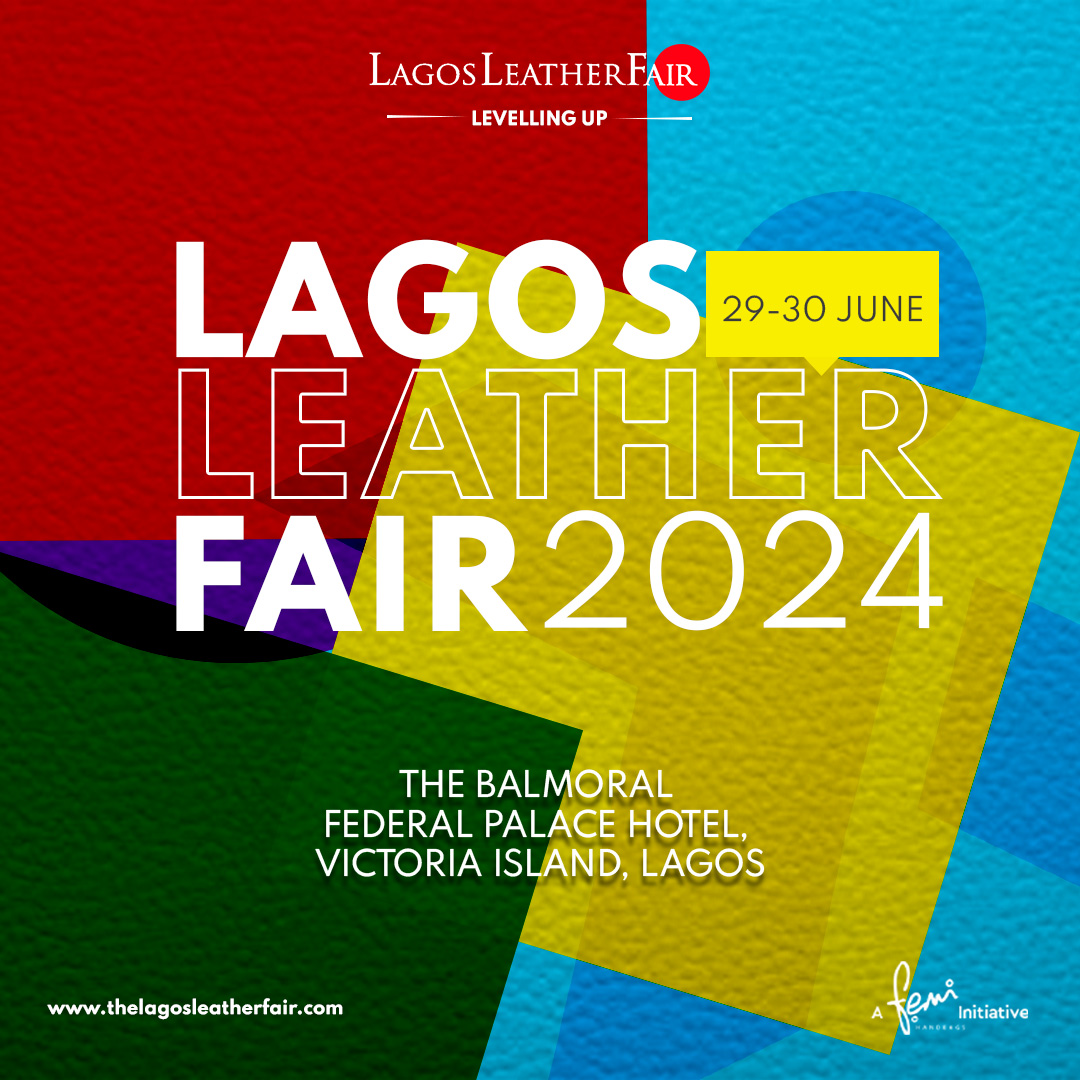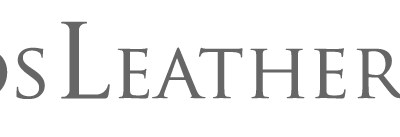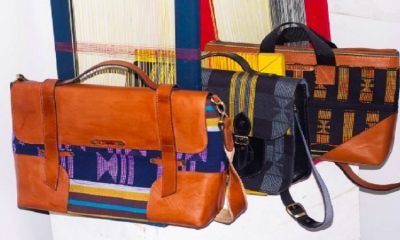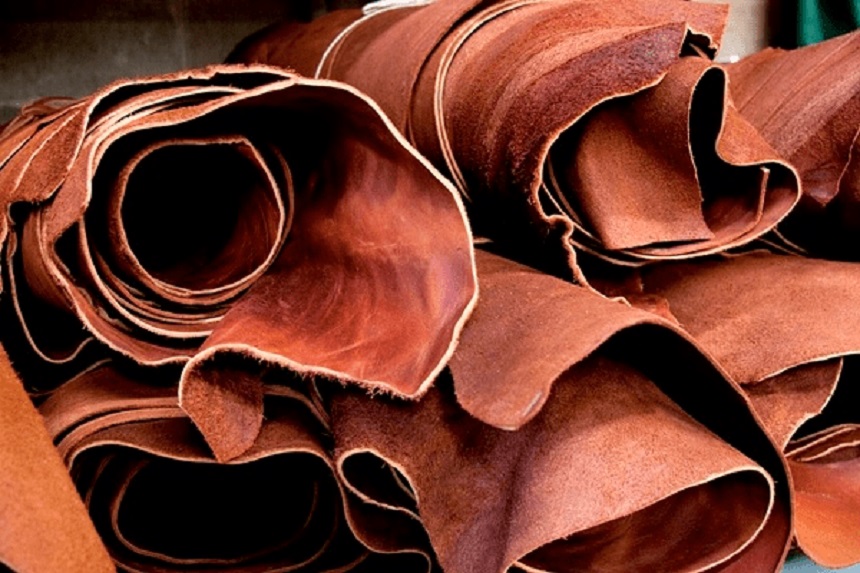Economy
LLF @5: Creating Opportunities for Leather Industry Players Across Sub-Saharan Africa
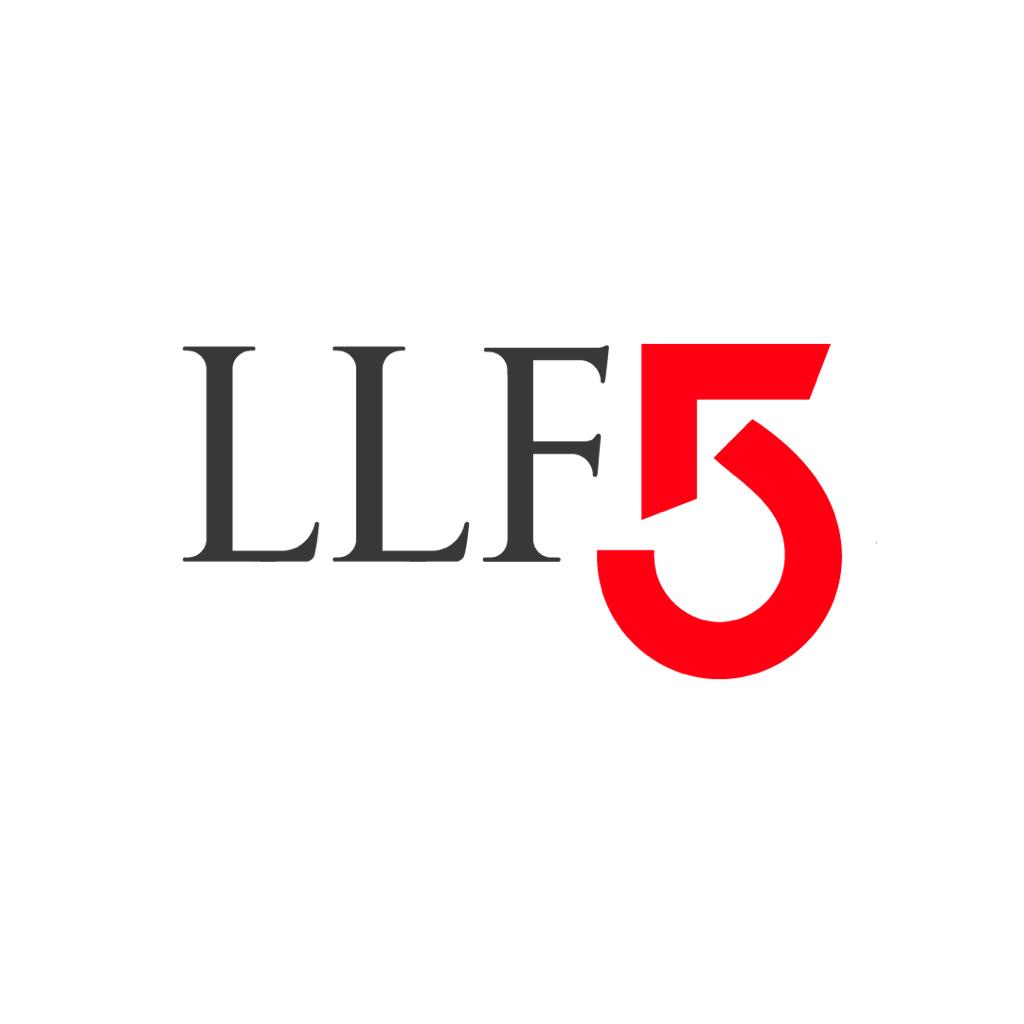
“The fast-evolving nature of the leather industry in Nigeria is quickly positioning the industry to become the next gold mine for our dear nation — that is, if it is properly explored and harnessed by both industry players and governmental bodies,” Femi Olayebi, CEO FemiHandbags, and Founder, Lagos Leather Fair opined at a leather industry stakeholder event.
Over the years, the Nigerian leather industry has continued to evolve and positively contribute to Africa’s economy both in revenue and in employment opportunities. According to the Nigerian Economic Summit Group (NESG), research shows that the industry contributes about 24% of the agricultural sector’s contribution to the GDP in Nigeria.
It is also one of the more significant employers of labour, with over 750,000 workers in the leather processing sector and about 500,000 in the finished leather goods sector. The Nigerian Economic Summit Group (NESG) has also projected that the industry could bring in earnings of about US$1 billion by 2025. Undoubtedly, the sector has the potential to metamorphose into the next big deal for Africa’s economy.
In order to make this prediction a reality, whilst simultaneously tapping into the enormous potential of the industry, select leading brands and industry thought leaders are taking up the responsibility — by forging alliances, and launching forward-thinking projects. One such project is the Lagos Leather Fair.
Creating opportunities for African Leather Industry Players
The Lagos Leather Fair (LLF) was created in 2017 by Mrs Femi Olayebi, the Creative Director of FemiHandbags — one of the continent’s leading leather brands. Having experienced, first-hand, the challenges that plague the sector, she was determined to provide a much-needed platform for leather designers to showcase their products, partner with stakeholders to grow the finished leather goods sector and change the narrative within an industry that holds an amazing potential to succeed as major foreign exchange earner.
Driven by these goals, the platform opened its doors to more than 6,900 individuals, businesses, partners, and other stakeholders from all across sub-Saharan Africa between 2017 and 2021. Each edition has created visibility for African leather-focused businesses and has featured revered thought leaders who equip industry players with the requisite knowledge necessary to navigate and grow within the industry.
Over the years, there has been steady growth within the leather industry. Nonetheless, there are prevailing challenges facing the industry.
Many local shoemakers, for instance, do not have access to the advanced technology needed to design high-quality wear for their teeming customers. This is a potential setback, especially when compared with their international counterparts. A large portion of the more established and advanced shoemakers in Lagos are those who design their shoes abroad and then import these shoes to the country for finishing.
Lagos Leather Fair has sought to tackle this challenge by investing in capacity building opportunities, through a series of training partnerships: seeking to bridge the skills gap in the leather and non-leather manufacturing industries; raise the standards; and equip young industry players with the requisite hard and soft skills to navigate the industry. LLF recently partnered with a training program called Kafawa.
The program was designed by My World of Bags in partnership with Mastercard Foundation, and it presents a holistic training experience from basic machine skills to specialised leather-crafting, to soft skills and entrepreneurship classes; since its launch in 2021, the program has directly impacted over 250 micro and small leather business owners across Nigeria. The 2022 edition of LLF will feature these recent graduate trainees within its Emerging Designers segment at the fair.
Made in Nigeria for Nigerians
Several reports have confirmed that many Nigerians have a preference for international brands because of their perceived higher quality than local brand output. A Stears business report revealed that if you ask 100 Nigerians to choose between local or international brands, 92 will choose the international brand, while 8 would be undecided.
In another blind brand experiment conducted amongst Nigerians, 98% claimed that they could differentiate between internationally-made and locally-made shoes. When the shoes were provided to them, however, only 32% could make a distinction. As a result, many companies across diverse industries have launched several consumer-focused campaigns to encourage local shopping, and the leather sector is no different.
Since its inception, the Lagos Leather Fair has curated over 30 masterclasses that have held conversations to change the narrative around made-in-Nigeria, for the leather industry and beyond. A call for Nigerians to shop local will not only develop the leather industry but will have a significant impact on the Nigerian economy at large. Lending their voices to the cause, respected thought leaders Alheri Egor-Egbe from Google, Giovanni Romano from Ithaki Paris, Laduma Ngxokolo from Maxhosa Africa in South Africa, Prof. Yvonne Watson of the Parsons School of Design, New York and a 3-D design expert Baboa Tachie-Mensa from Ghana, and dozens of others have joined in to drive this conversation with LLF over the years. These conversations are well paired with the fair’s spotlight on strong industry brands with premium quality products that have begun indeed to change the narrative.
2022 Outlook
“For us at LLF, the goal is to continue to drive value and draw attention to the leather industry. We believe that we have discovered a gold mine that will not only make our businesses successful but will increase the prosperity of our nation. We will not stop doing the good work until the industry is developed,” said Femi Olayebi, CEO FemiHandbags, and Founder of Lagos Leather Fair.
In 2022, LLF is set to host several initiatives in line with its overarching goals. In commemoration of its 5th anniversary, the platform is set to host another physical fair in Lagos, Nigeria — it will open its doors to leather enthusiasts, producers, manufacturers, lifestyle lovers, fashion experts, and the wider public to showcase leather products and services and keep the spotlight on the vast possibilities within the industry.
This year’s fair will take place at the Balmoral Convention Center at Federal Palace Hotel, Victoria Island, Lagos on June 11t and 12. This year, LLF will feature dozens of leather exhibitors, and create opportunities for brands to connect with prospective customers, their peers and other stakeholders; masterclasses to drive conversation; atelier sessions to expose the hidden tricks of leather crafting, and fashion runway showcase to further showcase brands.
LLF has also hinted at the launch of two initiatives that will further drive the industry forward: one is The Leather Portal — a platform that will serve as an e-directory connecting leather designer, brands, tanneries, and hardware suppliers across Nigeria and Africa; another is the Guild of Leather Designers (GOLD), a not-for-profit advisory body that will support the professional development of leather designers, promote best practices, facilitate access to business development tools and serve as a bridge between leather designers and various stakeholders to create an effective and sustainable ecosystem.
There is no better time than now for the government to begin to take a closer look at the leather sector. In 2021, the National Leather and Leather Products Policy Implementation Plan was launched to address specific challenges and shortcomings of the leather sector, with pragmatic strategies to permanently resolve these issues for optimal productivity. Whilst this is a commendable development, there is an urgent need to begin to put that plan to action, and a great first step would be to get a closer glimpse into the happenings in the industry by starting at this year’s Lagos Leather Fair.
Economy
Adedeji Urges Nigeria to Add More Products to Export Basket

By Adedapo Adesanya
The chairman of the Nigeria Revenue Service (NRS), Mr Zacch Adedeji, has urged the country to broaden its export basket beyond raw materials by embracing ideas, innovation and the production of more value-added and complex products
Mr Adedeji said this during the maiden distinguished personality lecture of the Faculty of Administration, Obafemi Awolowo University (OAU), Ile-Ife, Osun State, on Thursday.
The NRS chairman, in the lecture entitled From Potential to Prosperity: Export-led Economy, revealed that Nigeria experienced stagnation in its export drive over three decades, from 1998 to 2023, and added only six new products to its export basket during that period.
He stressed the need to rethink growth through the lens of complexity by not just producing more of the same stuff, lamenting that Nigeria possesses a high-tech oil sector and a low-productivity informal sector, as well as lacking “the vibrant, labour-absorbing industrial base that serves as a bridge to higher complexity,” he said in a statement by his special adviser on Media, Dare Adekanmbi.
Mr Adedeji urged Nigeria to learn from the world by comparative studies of success and failure, such as Vietnam, Bangladesh, Indonesia, South Africa, and Brazil.
“We are not just looking at numbers in a vacuum; we are looking at the strategic choices made by nations like Vietnam, Indonesia, Bangladesh, Brazil, and South Africa over the same twenty-five-year period. While there are many ways to underperform, the path to success is remarkably consistent: it is defined by a clear strategy to build economic complexity.
“When we put these stories together, the divergence is clear. Vietnam used global trade to build a resilient, complex economy, while the others remained dependent on natural resources or a single low-tech niche.
“There are three big lessons here for us in Nigeria as we think about our roadmap. First, avoiding the resource curse is necessary, but it is not enough. You need a proactive strategy to build productive capabilities,” he stated, adding that for Nigeria, which is at an even earlier stage of development and even less diversified than these nations, the warning is stark.
“Relying solely on our natural endowments isn’t just a path to stagnation; it’s a path to regression. The global economy increasingly rewards knowledge and complexity, not just what you can dig out of the ground. If we want to move from potential to prosperity, we must stop being just a source of raw materials and start being a source of ideas, innovation, and complex products,” the taxman stated.
He added that President Bola Tinubu has already begun the difficult work of rebuilding the economy, building collective knowledge to innovate, produce, and build a resilient economy.
Economy
Nigeria Inaugurates Strategy to Tap into $7.7trn Global Halal Market

By Adedapo Adesanya
President Bola Tinubu on Thursday inaugurated Nigeria’s National Halal Economy Strategy to tap into the $7.7 trillion global halal market and diversify its economy.
President Tinubu, while inaugurating the strategy, called for disciplined, inclusive, and measurable action for the strategy to deliver jobs and shared prosperity across the country.
Represented by Vice-President Kashim Shettima, he described the unveiling of the strategy as a signal of Nigeria’s readiness to join the world in grabbing a huge chunk of the global halal economy already embraced by leading nations.
“As well as to clearly define the nation’s direction within the market, is expected to add an estimated $1.5 billion to the nation’s Gross Domestic Product (GDP) by 2027. It is with this sense of responsibility that I formally unveil the Nigeria National Halal Economy Strategy.
“This document is a declaration of our promise to meet global standards with Nigerian capacity and to convert opportunity into lasting economic value. What follows must be action that is disciplined, inclusive, and measurable, so that this Strategy delivers jobs, exports, and shared prosperity across our nation.
“It is going to be chaired by the supremely competent Minister of Industry, Trade and Investment.”
The president explained that the halal-compliant food exports, developing pharmaceutical and cosmetic value chains would position Nigeria as a halal-friendly tourism destination, and mobilising ethical finance at scale,” by 2030.
“The cumulative efforts “are projected to unlock over twelve billion dollars in economic value.
“While strengthening food security, deepening industrial capacity, and creating opportunities for small-and-medium-sized enterprises across our states,” he added.
Allaying concerns by those linking the halal with religious affiliation, President Tinubu pointed out that the global halal economy had since outgrown parochial interpretations.
“It is no longer defined solely by faith, but by trust, through systems that emphasise quality, traceability, safety, and ethical production. These principles resonate far beyond any single community.
“They speak to consumers, investors, and trading partners who increasingly demand certainty in how goods are produced, financed, and delivered. It is within this broader understanding that Nigeria now positions itself.”
Tinubu said many advanced Western economies had since “recognised the commercial and ethical appeal of the halal economy and have integrated it into their export and quality-assurance systems.”
President Tinubu listed developed countries, including the United Kingdom, France, Germany, the Netherlands, the United States, Canada, Australia, and New Zealand.
“They are currently among the “leading producers, certifiers, and exporters of halal food, pharmaceuticals, cosmetics, and financial products.”
He stated that what these developed nations had experienced is a confirmation of a simple truth, that “the halal economy is a global market framework rooted in standards, safety, and consumer trust, not geography or belief.”
The president explained that the Nigeria national halal economy strategy is the result of careful study and sober reflection.
He added that it was inspired by the commitment of his administration of “to diversify exports, attract foreign direct investment, and create sustainable jobs across the federation.
“It is also the product of deliberate partnership, developed with the Halal Products Development Company, a subsidiary of the Saudi Public Investment Fund.
“And Dar Al Halal Group Nigeria, with technical backing from institutions such as the Islamic Development Bank and the Arab Bank for Economic Development in Africa.”
The Minister of Industry, Trade and Investment, Mrs Jumoke Oduwole, said the inauguration of the strategy was a public-private collaboration that has involved extensive interaction with stakeholders.
Mrs Oduwole, who is the Chairperson, National Halal Strategy Committee, said that the private sector led the charge in ensuring that it is a whole-of-government and whole-of-country intervention.
The minister stressed that what the Halal strategy had done for Nigeria “is to position us among countries that export Halal-certified goods across the world.
The minister said, “We are going to leverage the African Continental Free Trade Area (AfCFTA) to ensure that we export our Halal-friendly goods to the rest of Africa and beyond to any willing markets; participation is voluntary. “
She assured that as the Chairperson, her ministry would deliver on the objectives of the strategy for the prosperity of the nation.
The Chairman of Dar Al-Halal Group Nigeria L.td, Mr Muhammadu Dikko-Ladan, explained that the Halal Product Development Company collaborated with the group in developing the strategy.
“In addition to the strategy, an export programme is underway involving the Ministry of Trade and Investment, through which Nigerian companies can be onboarded into the Saudi Arabian market and beyond.£
Mr Dikko-Ladan described the Strategy as a landmark opportunity for Nigeria, as it creates market access and attracts foreign direct investment.
Economy
UK, Canada, Others Back New Cashew Nut Processing Plant Construction in Ogun

By Adedapo Adesanya
GuarantCo, part of the Private Infrastructure Development Group (PIDG), has provided a 100 per cent guarantee to support a $75 million debt facility for Robust International Pte Ltd (Robust) to construct a new cashew nut processing plant in Ogun State, Nigeria.
GuarantCo, under the PIDG is funded by the United Kingdom, the Netherlands, Switzerland, Australia, Sweden and Canada, mobilises private sector local currency investment for infrastructure projects and supports the development of financial markets in lower-income countries across Africa and Asia.
Nigeria is one of Africa’s largest cashew producers of 300,000 tonnes of raw cashew nuts annually, yet currently less than 10 per cent are processed domestically. Most raw nuts are exported unprocessed to Asian and other countries, forfeiting up to 80 per cent of their potential export value and adding exposure to foreign exchange fluctuations.
According to GuarantCo, this additional plant will more than double Robust’s existing cashew processing capacity from 100 metric tonnes per day to 220 metric tonnes per day to help reduce this structural gap.
The new plant will be of extensive benefit to the local economy, with the procurement of cashew nuts from around 10,000 primarily low-income smallholder farmers.
There is an expected increase in export revenue of up to $335 million and procurement from the local supply chain over the lifetime of the guarantee.
Furthermore, the new plant will incorporate functionality to convert waste by-products into value-added biomass and biofuel inputs to enhance the environmental impact of the transaction.
It is anticipated that up to 900 jobs will be created, with as many as 78 per cent to be held by women. Robust also has a target to gradually increase the share of procurement from women farmers, from 15 per cent to 25 per cent by 2028, as it reaches new regions in Nigeria and extends its ongoing gender-responsive outreach programme for farmers.
Terms of the deal showed that the debt facility was provided by a Symbiotics-arranged bond platform, which in turn issued notes with the benefit of the GuarantCo guarantee. These notes have been subscribed to in full by M&G Investments. The transaction was executed in record time due to the successful replication of two recent transactions in Côte d’Ivoire and Senegal, again in collaboration with M&G Investments and Symbiotics.
Speaking on the development, the British Deputy High Commissioner, Mr Jonny Baxter, said: “The UK is proud to support innovative financing that mobilises private capital into Nigeria’s productive economy through UK-backed institutions such as PIDG. By backing investment into local processing and value addition, this transaction supports jobs, exports and more resilient agricultural supply chains. Complementing this, through the UK-Nigeria Enhanced Trade and Investment Partnerships and the Developing Countries Trading Scheme, the UK is supporting Nigerian businesses to scale exports to the UK and beyond, demonstrating how UK-backed partnerships help firms grow and compete internationally.”
Mr Dave Chalila, Head of Africa and Middle East Investments at GuarantCo, said: “This transaction marks GuarantCo’s third collaboration with M&G Investments and Symbiotics, emphasising our efforts to bring replicability to everything we do so that we accelerate socio-economic development where it matters most. The transaction is consistent with PIDG’s mandate to mobilise private capital into high-impact, underfinanced sectors. In this case, crowding in institutional investors in the African agri-processing value chain.
“As with the two recent similarly structured transactions, funding is channelled through the Symbiotics institutional investor platform, with the notes externally rated by Fitch and benefiting from a rating uplift due to the GuarantCo guarantee.”
Adding his input, Mr Vishanth Narayan, Group Executive Director at Robust International Group, said: “As a global leader in agricultural commodities, Robust International remains steadfast in its commitment to building resilient, ethical and value-adding supply chains across origin and destination markets. This transaction represents an important step in advancing our long-term strategy of strengthening processing capabilities, deepening engagement with farmers and enhancing local value addition in the regions where we operate. Through sustained investment, disciplined execution and decades of operating experience, we continue to focus on delivering reliable, high-quality products while fostering inclusive and sustainable economic growth.”
For Ms María Redondo, director at M&G Investments, “The guarantee gives us the assurance to invest in hard currency, emerging market debt, while supporting Robust’s new cashew processing plant in Nigeria. It’s a clear example of how smart credit enhancement can unlock institutional capital for high-impact development and manage currency and credit risks effectively. This is another strong step in channelling institutional capital into meaningful, on‑the‑ground growth.”
Also, Ms Valeria Berzunza, Structuring & Arranging at Symbiotics, said: “We are pleased to continue our collaboration with M&G Investments, GuarantCo, and now with Robust through a transaction with a strong social and gender focus, demonstrating that well-structured products can boost commercially attractive, viable, and impactful investments.”
-

 Feature/OPED6 years ago
Feature/OPED6 years agoDavos was Different this year
-
Travel/Tourism9 years ago
Lagos Seals Western Lodge Hotel In Ikorodu
-

 Showbiz3 years ago
Showbiz3 years agoEstranged Lover Releases Videos of Empress Njamah Bathing
-

 Banking8 years ago
Banking8 years agoSort Codes of GTBank Branches in Nigeria
-

 Economy3 years ago
Economy3 years agoSubsidy Removal: CNG at N130 Per Litre Cheaper Than Petrol—IPMAN
-

 Banking3 years ago
Banking3 years agoSort Codes of UBA Branches in Nigeria
-

 Banking3 years ago
Banking3 years agoFirst Bank Announces Planned Downtime
-

 Sports3 years ago
Sports3 years agoHighest Paid Nigerian Footballer – How Much Do Nigerian Footballers Earn


